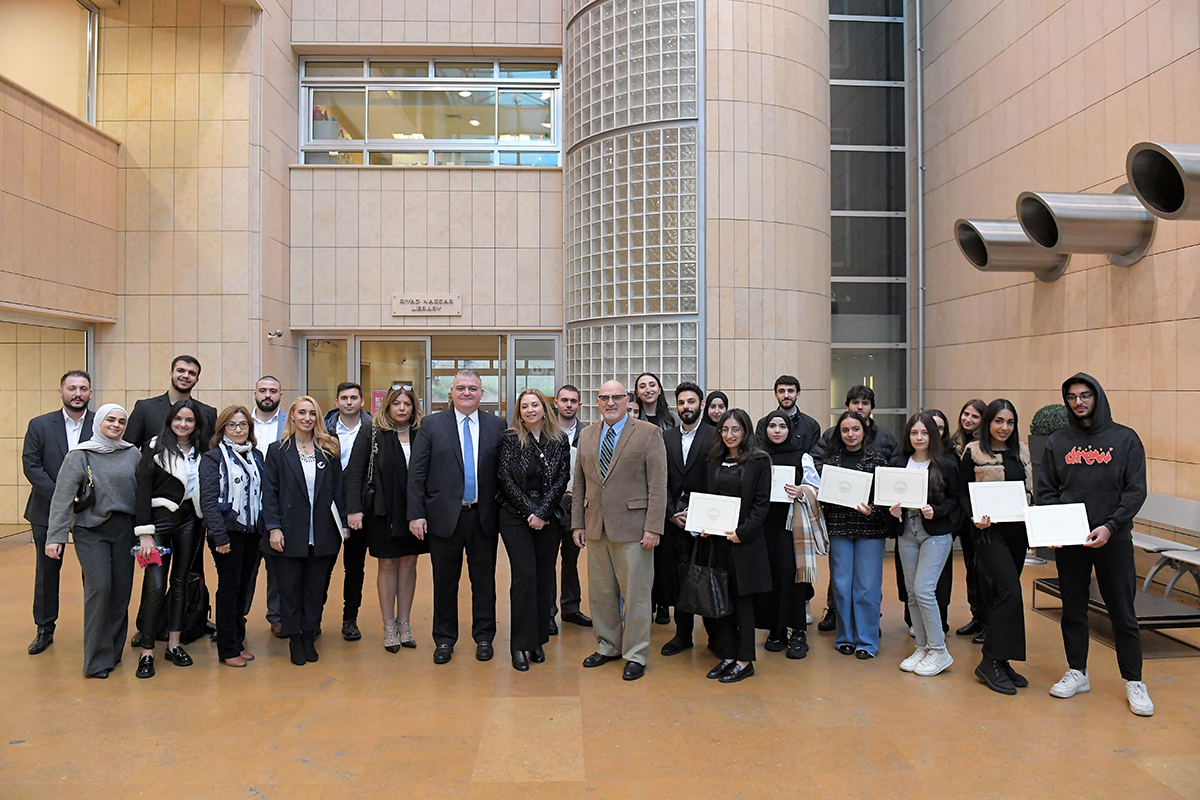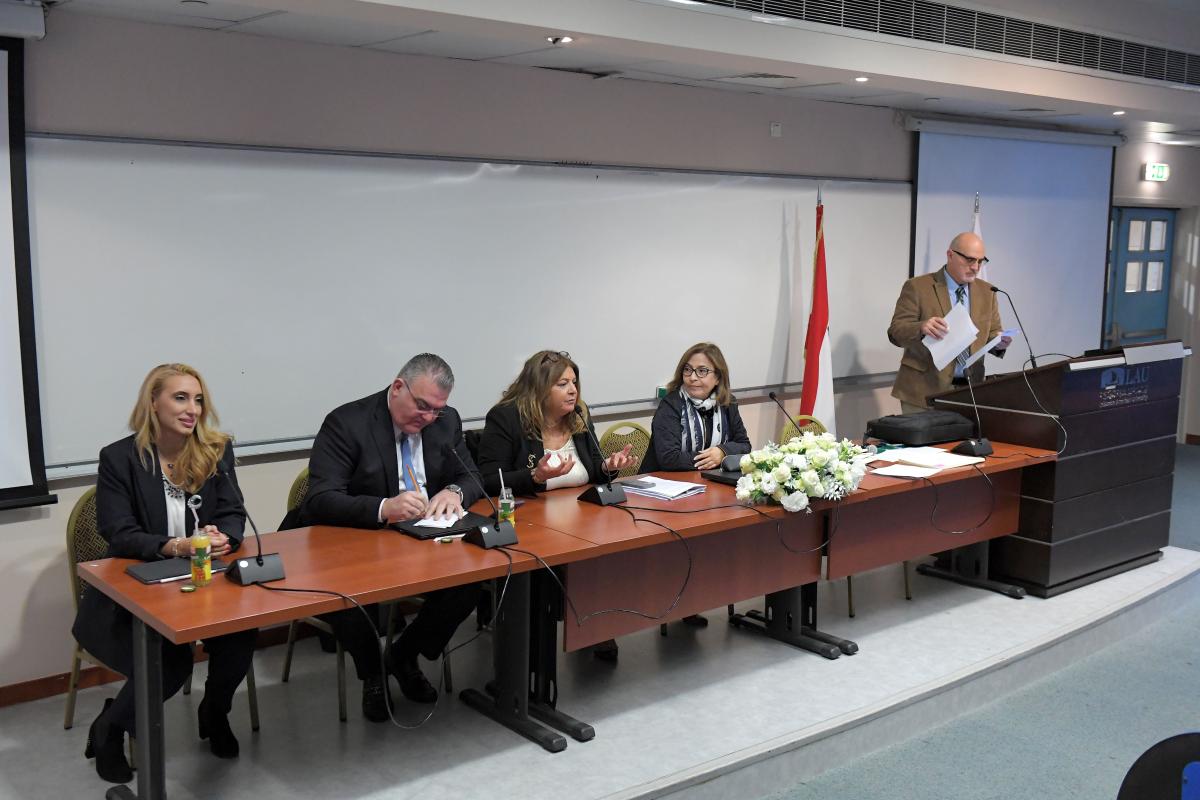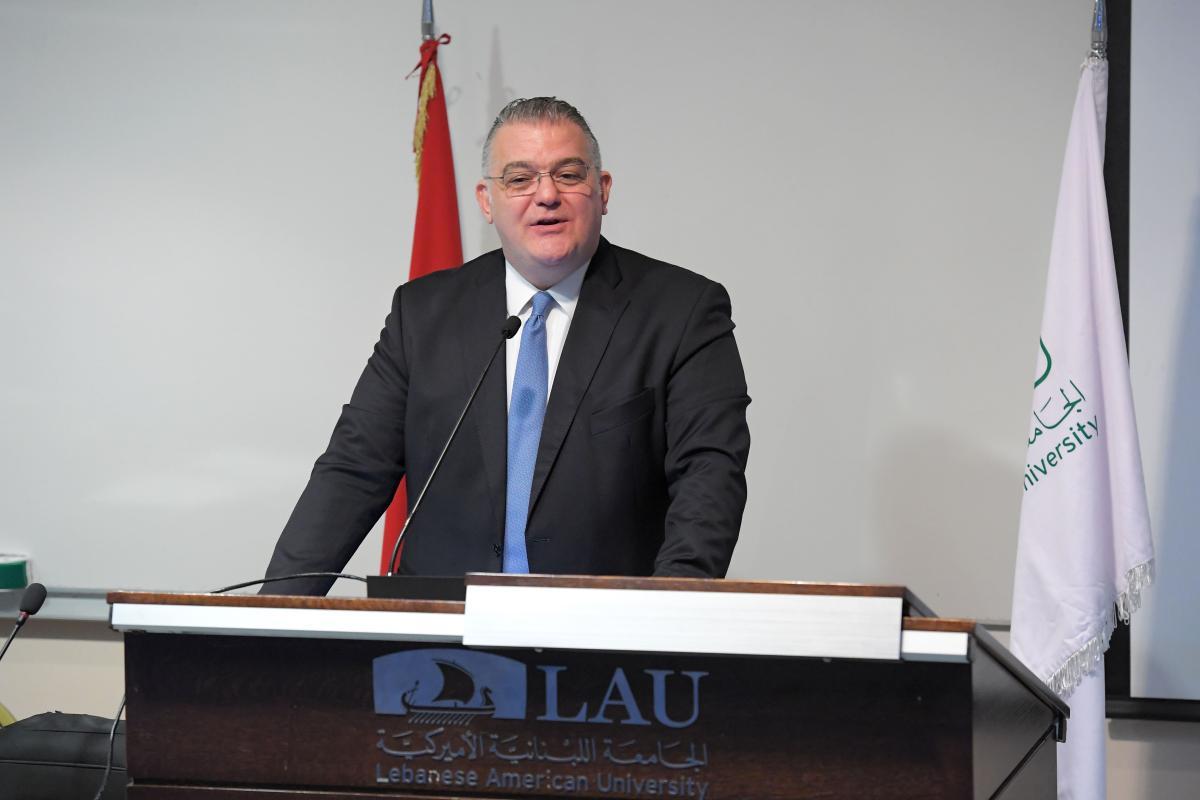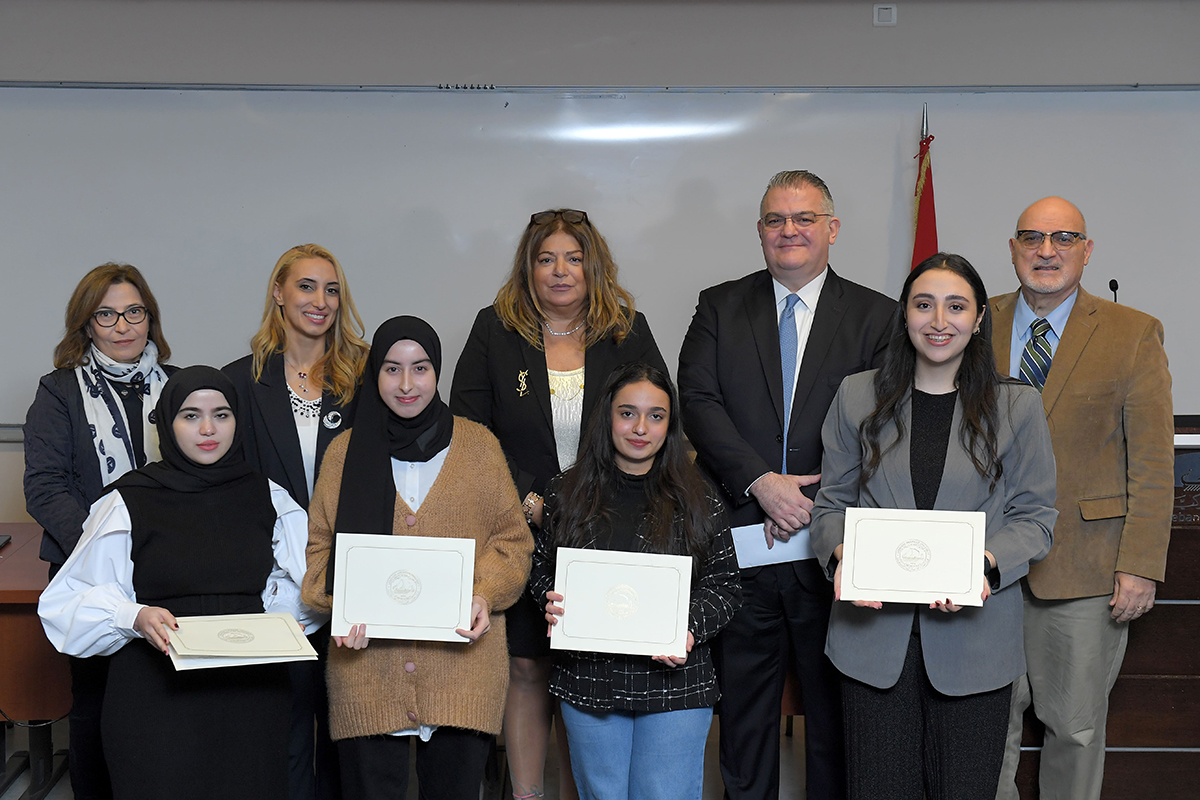LAU Entrepreneurs Ready to Tackle the Business Market
Senior management students gain a head start for their innovative start-ups through financial incentives and in-house incubation services.
With the paradigm shift brought about by COVID-19, the world economy witnessed an upheaval that challenged businesses of all sizes and called for innovation and entrepreneurship to build resilience and sustainability.
In Lebanon, where businesses grapple with the compounding effects of persistent financial crises, fostering innovation and entrepreneurship are essential catalysts for jump-starting the country’s depressed economy.
Recognizing the vital role these skills play in meeting the demands of our economic landscape, LAU’s Adnan Kassar School of Business (AKSOB), through its Innovation and Entrepreneurship course, encourages its students to cultivate the critical thinking and experience needed to conceptualize business solutions that align with the UN Sustainable Development Goals (SDGs).
To that effect, in a simulation of real-life business pitches, Dr. Michel Majdalani, course designer and assistant professor at AKSOB, organized an award ceremony on December 22, during which course students presented their capstone projects to a judging panel of university faculty and external experts.
Five groups of finalists competed to turn timely ideas into impactful ventures inspired by corporate and public services, economies and emerging technologies for sustainability and development.
The projects were assessed on their originality and innovation, feasibility and market potential, business model and sustainability, business plan, presentation and communication and impact and social responsibility.
Senior students Nariman Cheikh Mohammad, Hadil Omarieh, Batoul Jradi, and Christa Maria Daoud won the $2,500 first prize for their project, “Lakta,” an online app intended to reduce food waste by connecting grocery stores selling near-expiration products at a discount with budget-conscious buyers.
The team’s motivation in conceiving the project, said Daoud, was to find a solution to the challenge of accessing quality and affordable food faced by the community of students who live on a tight budget.
She attributed their win to the invaluable guidance of Dr. Majdalani and his efforts in collaborating with the event’s donor, Mr. Michel Bayoud. Mr. Bayoud, founder emeritus of Boecker World Holding and chairman of the advisory board to the faculty of agriculture and food sciences at the American University of Beirut, also provided mentorship to all participating students throughout the semester.
“Their adept infusion of innovation and practicality transformed our business idea into a pitch-ready concept for investors,” said Daoud.
Other groups tackled issues of employability for the disabled, plastic waste reduction and affordable commuting by presenting viable solutions with practical business models.
A total sum of $5,000 was donated by Mr. Bayoud as a financial reward to the top three winning groups to help kickstart their startups.
“Mr. Bayoud’s support extends beyond financial sponsorship for this event,” said Dr. Josiane Fahed-Sreih, chair of the management studies department at AKSOB, in her opening speech. “It also encompasses the inspiration derived from his extensive entrepreneurial journey, culminating in his international leadership roles,” she added.
Dr. Sreih noted that experiential learning and competition have become integral components of the management studies department curriculum and deliverables at AKSOB.
As part of LAU’s commitment to educating and incentivizing its students to innovate in agile environments, the LAU Innovation Center, directed by Ms. Annie Seferian, awarded all participating groups a complimentary pass to its Spark program, which serves as an incubator and accelerator for business startups.
“This is a distinctive opportunity for all graduates of this course to establish a business, receive expert mentorship, training, essential tools for idea implementation, and exchange opportunities with external universities,” Seferian said.
The course was developed by Dr. Majdalani with a focus on praxis theory, which entails an understanding of the cycles of action, reflection and theory building, through multidisciplinary business modeling perspectives. “We also achieve this by infusing the participation of successful practitioners as mentors at the different stages of the projects,” said Dr. Majdalani.
Serving as a vital bridge between education and practice, the course places innovation at the forefront of entrepreneurship endeavors, hence accelerating the startup process, which is “timely for Lebanon,” he added.
Starting in the spring of 2024, the course will also be offered at the graduate level on the Byblos campus.



